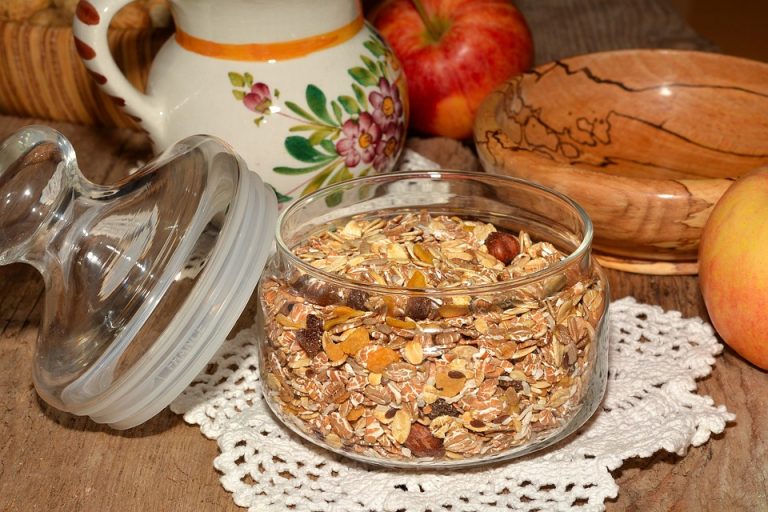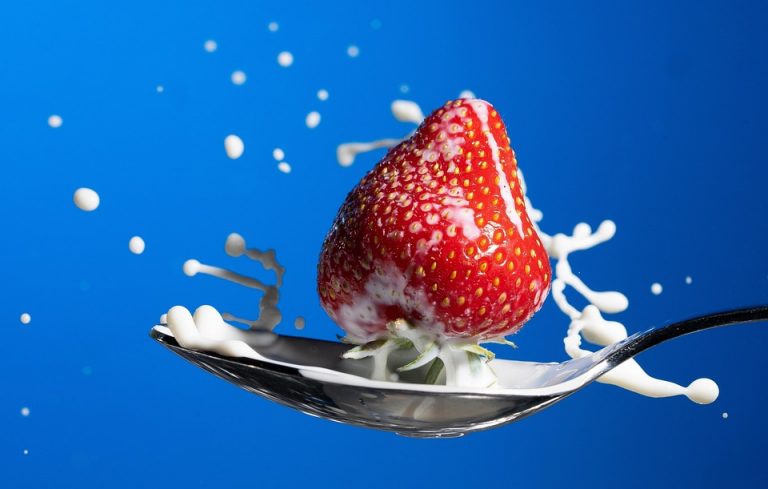Overnight hacks to lower blood sugar are simple strategies you can use tonight to help steady your glucose while you sleep. These are practical moves — not miracle promises — that target insulin response, digestion, and recovery so your morning meter shows a friendlier number. If you’re tired of waking to highs or the sugar-sweet roll of midnight cravings, these tactics matter because sleep is when your body repairs and when choices made hours earlier actually show up on the scale.
I understand the fatigue and the worry. I also know how small, consistent changes can tilt the scales. Below you’ll find seven usable, science-backed overnight hacks to lower blood sugar that fit into real life. Each one is punchy, doable, and aimed at helping your body wake up calmer.
Contents
- Overnight Hacks To Lower Blood Sugar: Quick Wins Before Bed
- 1. Eat A Small Protein-Rich Snack 60–90 Minutes Before Bed
- 2. Move Gently After Dinner — Not a Marathon, Just Momentum
- Action Plan: How To Stack These Hacks Tonight
- What The Research Says
- Common Mistakes To Avoid
- Practical Tips For Nighttime Monitoring
- Bottom Line
- FAQ
Overnight Hacks To Lower Blood Sugar: Quick Wins Before Bed
Start here when you want results you can measure. These overnight hacks to lower blood sugar work because they influence digestion, insulin sensitivity, and stress hormones — the big players in overnight glucose swings. Implement one tonight and add another tomorrow. Layer them and you build momentum.
1. Eat A Small Protein-Rich Snack 60–90 Minutes Before Bed
A late snack isn’t the enemy; the wrong snack is. Choosing a small, protein-forward bite — think Greek yogurt (unsweetened), a boiled egg, or a tablespoon of natural peanut butter — can blunt blood sugar spikes and reduce overnight hypoglycemia risk.
Protein slows carbohydrate absorption and supports steady insulin action. Research on bedtime protein shows improvements in satiety and modest benefits for overnight glucose control, especially when paired with a low-carb choice. Keep portions controlled and pair protein with a small fiber source if you need it.
2. Move Gently After Dinner — Not a Marathon, Just Momentum
A 10– to 20–minute walk after dinner is one of the most underrated overnight hacks to lower blood sugar. Light activity helps muscle cells use glucose without needing extra insulin. It’s simple: walk the block, wash dishes while standing, or do gentle yoga.
Clinical studies show post-meal movement reduces postprandial glucose peaks. This is low-cost, low-effort, and effective. Make it part of the after-dinner ritual and you’ll notice calmer numbers in the morning.
3. Optimize Your Carb Timing and Portions
Not every carbohydrate is equal. Spacing carbs earlier in the evening and keeping dinner moderate in carbs reduces the load your body has to manage overnight. Swap white rice for cauliflower rice, have a smaller portion of whole grains, and pair carbs with protein and healthy fat.
Changing when and how much you eat is a top-tier overnight hack to lower blood sugar — because it changes the biochemical ripple effect that lasts while you sleep. If you struggle with timing, try a rule: no heavy carbs within two hours of bedtime.
4. Try A Small Bedtime Glass Of Low-Fat Milk Or Cinnamon
Some people benefit from a modest glass of low-fat milk before bed; the protein and casein may reduce overnight glucose dips and support steady levels. Another inexpensive tip is cinnamon, which has been shown in various studies to modestly improve fasting glucose and insulin sensitivity when used regularly.
These aren’t cures, but they’re practical overnight hacks to lower blood sugar that many people can test on their own. Use small amounts and pay attention to how your body responds.
5. Reduce Stress With A 10-Minute Bedtime Routine
Stress raises cortisol, and cortisol raises glucose. That equation is relentless overnight. A short, consistent bedtime routine — breathing, guided meditation, or a warm salt-foot soak — lowers cortisol and readies your body for repair.
You don’t need an hour. Ten minutes of focused breathing or a 5–10 minute guided meditation app can make a meaningful difference. This is one of the gentlest overnight hacks to lower blood sugar and it doubles as a sleep hygiene habit.
6. Improve Sleep Quality — Dark, Cool, And Uninterrupted
Poor sleep drives insulin resistance. Deep, uninterrupted sleep improves glucose regulation. Make your bedroom a sleep sanctuary: cool temperature, blackout curtains, and remove blue-light devices at least 30 minutes before bed.
If you snore loudly or wake gasping, discuss it with your clinician — untreated sleep apnea can sabotage blood sugar control. Better sleep is an essential overnight hack to lower blood sugar because it resets the hormonal balance your body relies on.
7. Consider Medication Timing Or Supplements With Clinical Backing
If you use glucose-lowering medication, talk to your provider about timing; small adjustments can change overnight control. Some supplements, like magnesium, have evidence supporting modest improvements in fasting glucose in people who are deficient. Chromium and alpha-lipoic acid appear in studies too, but results vary.
Always check with your healthcare team before adding supplements or changing medication timing. This is a responsible overnight hack to lower blood sugar — it works best when coordinated with professional care.
Action Plan: How To Stack These Hacks Tonight
You don’t need all seven at once. Start with three and track. Here’s a simple sequence to try tonight:
- Eat a 100–150 calorie protein snack 60–90 minutes before bed.
- Go for a 15-minute after-dinner walk.
- Practice a 10-minute breathing or quiet-time routine before lights-out.
- Keep dinner carbs moderate and push grains earlier in the evening.
- Make your bedroom cool and dark for uninterrupted sleep.
Try this sequence for a week as one of your overnight hacks to lower blood sugar. Check your numbers in the morning and tweak as needed. Consistency is the key.
What The Research Says
Multiple studies show that post-meal activity reduces glucose spikes, and protein before bed can blunt overnight hypoglycemia in some people. Clinical trials on cinnamon and magnesium suggest modest benefits for fasting glucose when used consistently. Sleep research connects poor sleep and sleep apnea to worsened insulin resistance, which underlines why sleep optimization is far from optional.
If you want a deeper dive, look to major institutions for reliable summaries: the American Diabetes Association and university medical centers regularly publish patient-friendly guides that explain the mechanisms behind these overnight hacks to lower blood sugar.
Common Mistakes To Avoid
- Skipping dinner entirely and then snacking on carbs late — that encourages instability.
- Overloading on “low-fat” processed snacks that are high in sugar.
- Thinking more supplements equal better results — they work best as part of an overall plan.
- Ignoring sleep quality — the hormonal damage from poor sleep can undo daytime efforts.
These missteps are common, and they’re fixable. The goal is steady progress, not perfection.
Practical Tips For Nighttime Monitoring
If you use a continuous glucose monitor, look for trends rather than single numbers. Note how your overnight hacks to lower blood sugar change your curve over several nights.
If you finger-prick, aim for consistent timing each morning. Record what you did the night before: snack, walk, stress level, sleep quality. Over time you’ll see patterns and know which hacks work best for your body.
Bottom Line
Bottom Line: These seven overnight hacks to lower blood sugar are practical, doable, and rooted in how your body actually works. Start small: a protein snack, a short walk, and a calming bedtime routine. Optimize sleep and be mindful about carbs. Work with your healthcare provider on medication timing and supplements. Night by night, these choices add up to calmer mornings and a more confident you.
You can test one tonight and another tomorrow. Be patient with yourself — lasting change is a quiet accumulation of smart choices.
FAQ
Will one night of these hacks make a big difference?
Yes and no. One night can show measurable change, especially if you’re trying a large shift like adding a post-meal walk or changing bedtime carbs. Real, lasting improvement comes from repeating the habits.
Are supplements like cinnamon or magnesium safe to try?
Many people tolerate them well, but you should check with your clinician—especially if you take other medications. Supplements can interact with drugs and aren’t a substitute for medical care.
What if I have low blood sugar at night?
If you experience nighttime hypoglycemia, discuss it immediately with your healthcare provider. A small bedtime protein snack can help, but medication adjustments may be needed.
How long before I should expect to see changes?
Some changes appear overnight; others take days to weeks. Track trends over time and prioritize consistency. Small habits compound.
Can children or pregnant people use these hacks?
Children and pregnant people have specific needs. Always consult a pediatrician or obstetric provider before applying these tactics.
Visual lien and to paragohras an
References
-
The American Diabetes Association provides guidance on postprandial glucose management and lifestyle strategies, and its patient resources explain the science behind timing meals and activity (http://www.diabetes.org).
-
The National Sleep Foundation offers research and practical advice on how sleep quality influences insulin resistance and overall metabolic health (http://www.sleepfoundation.org).
-
A review from the National Institutes of Health discusses nutritional supplements like magnesium and cinnamon and their effects on fasting glucose and insulin sensitivity (http://www.ncbi.nlm.nih.gov).
-
Mayo Clinic outlines the clinical impact of sleep apnea on blood sugar control and why diagnosis matters for people struggling with overnight glucose swings (http://www.mayoclinic.org).
-
Harvard Health Publishing examines the benefits of post-meal walks and physical activity for glucose control and cardiovascular health (http://www.health.harvard.edu).








